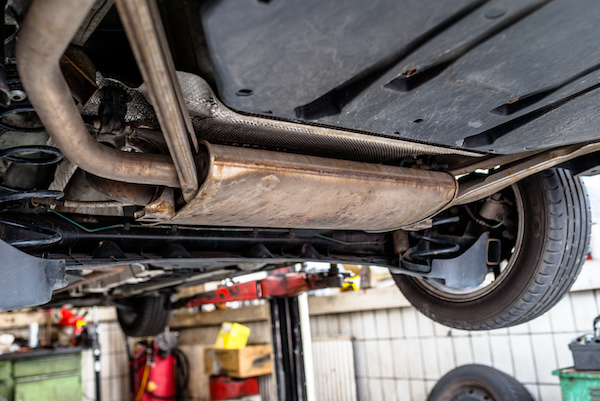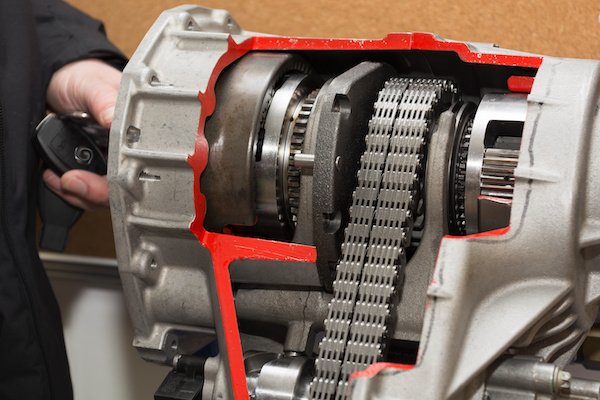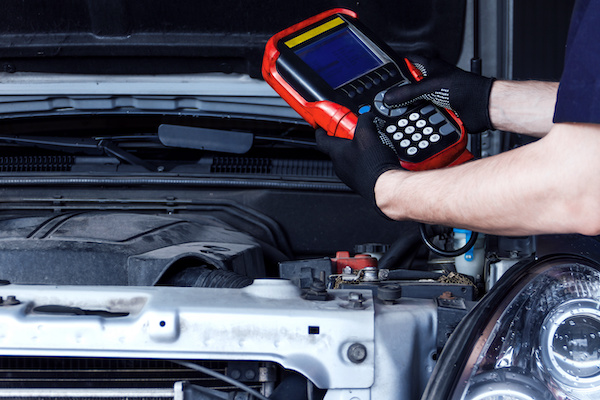Posted on 7/25/2022

Wondering what are common signs of exhaust system problems for your vehicle are and how to prevent them from causing long-term engine damage? Having your vehicle serviced at regular intervals is the best way to prevent costly automotive repairs from cropping up. Following are a few examples of common issues that can lead to long-term damage with your vehicle's exhaust system. Common Signs of Exhaust System Problems Faulty Gaskets and Seals - broken gaskets and seals can prevent toxic or harmful gassing from seeping into your vehicle's exhaust system. In most cases, a malfunctioning manifold gasket or seal will cause unusual noises coming from the engine. If you notice hissing, knocking, or tapping sounds coming from your car engine, take your vehicle in for service with a certified auto mechanic as soon as possible. Malfunctioning Oxygen Sensor - faulty oxygen sensors are another cause of engine and exhaust system problems. If the oxygen sensor in your car or truck is fault ... read more
Posted on 6/27/2022

If you own a vehicle with an AWD/4x4 system, you’ve probably heard of the transfer case before. The easiest way to explain what a transfer case is that it transfers the power from the engine and through the transmission to the vehicle’s axles in the rear and front shafts. It allows all four of your wheels to perform wonderfully, especially in offroading conditions. All-wheel drive and 4-wheel drive vehicles have gained popularity over the last decade or two. In fact, over half of the vehicles on the road today have these capabilities. If you want to take care of your investment, the transfer case should go unmissed. The maintenance required is normally a gear oil or transmission fluid. Since this liquid is exposed to high pressures and temperatures constantly, the fluid loses its effectiveness over time. When this happens, it is important to change or flush the fluid to prevent a breakdown. Another form of maintenance that the transfer case requires is general inspectio ... read more
Posted on 5/27/2022

One of the scariest situations a driver can encounter is a locked up steering wheel. While this problem is less likely to occur in newer cards, it can still happen to anyone. A hard steering wheel can be due to various problems associated with the power steering system, suspension, or even ignition. Here are some problems that can cause your steering wheel to lock up: Power steering system issue: The power steering pump is one major component of the system that can get stuck or jammed with debris over time. Another possible explanation why your wheel seized up is due to a power steering fluid leak (if you have a hydraulic system). Either way, these problems are very difficult to deal with so please bring your vehicle to I-70 Auto Service for repairs. Steering rack or suspension issue: In rare instances, a failure in your vehicle’s suspension, or in the steering rack or column, will cause your steering wheel to stiffen up. Faulty ignition: An ignition system can ... read more
Posted on 4/18/2022

Did you know that April is National Car Care Month? This month, we encourage you all to kick-start your car's spring preventative maintenance routine, especially if you slacked off during the winter. A little refresh can make a world of difference and extend the life of your vehicle. If you have plans to drive far and wide these upcoming months, you should consider getting some maintenance beforehand. The Ultimate Spring Maintenance ChecklistReplace your oil and filter. An oil change is the most effective way to keep your engine operating smoothly throughout the spring and summer. Always remember to follow your automaker's guidelines for fluid changes. Check your fluid levels. When changing the oil and filter, our technicians will gladly check your other fluid levels. These include your brake fluid, coolant, transmission fluid, etc. Swap out your wiper blades. If your wiper blades ar ... read more
Posted on 3/30/2022

Check engine lights can be daunting, especially if you're the average driver with little-to-no automotive knowledge. If this yellow light comes on your dash, you might question whether you should go to the auto repair shop at all. Today, we will answer the question: should you self-diagnose a check engine light? While some individuals can do it at home, with the help of the internet, you can still have it wrong. The information can be overwhelming, and sometimes you don't know where to look. That is why we recommend taking your car to our Kansas City auto repair shop for check engine light diagnostics. Our facility has top-of-the-line diagnostic and scan tools to ensure the process is accurate and convenient. Also, our technicians are ASE-certified, and they have plenty of knowledge and expertise in reading trouble codes. 5 Common Problems That Can Trigger the Check Engine Light Below are some of the potential problems we can find that could've caus ... read more